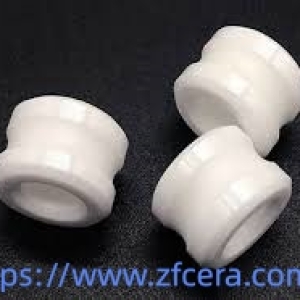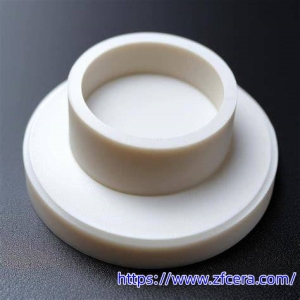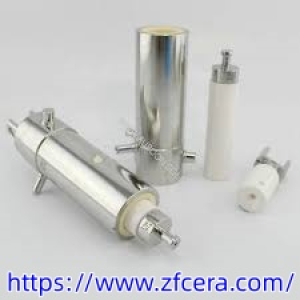The Ceramic Nozzle from Zhufa represents a breakthrough in combining advanced material science with precision engineering. Crafted from high-performance ceramics such as alumina, zirconia, and silicon carbide, this component offers unmatched resistance to wear, thermal stress, and chemical corrosion. By integrating state-of-the-art manufacturing techniques, including injection molding, sintering, and precision surface finishing, each nozzle maintains exact dimensional tolerances and superior mechanical integrity, making it indispensable for complex industrial processes.
The demand for such high-performance components is rapidly increasing across multiple sectors. Industries like chemical processing, metallurgy, and additive manufacturing face growing challenges, including exposure to abrasive materials, extreme temperatures, and corrosive environments. Adopting advanced ceramic solutions helps maintain operational consistency and ensures reliable output in processes that require precise flow control. The device's durability extends maintenance intervals and reduces downtime, providing a tangible advantage in large-scale industrial operations.
Manufacturers continuously explore new materials to enhance nozzle performance. Innovations in hybrid ceramic composites and specialized formulations improve resistance to cracking and erosion while maintaining the precise flow characteristics required for high-precision applications. Advanced design techniques, including computational modeling and stress analysis, allow engineers to optimize internal channels, tip geometry, and surface finishes to maximize efficiency and longevity. The result is a component that delivers both reliability and adaptability across challenging workflows.
Global market trends further emphasize the importance of these components. As industries focus on sustainability, longer service life and reduced material consumption become critical factors. High-performance ceramic nozzles reduce waste, minimize the frequency of replacements, and lower energy consumption associated with manufacturing and maintenance. Their ability to maintain consistent flow and resist chemical attack supports environmentally conscious production practices without compromising productivity or quality. Companies investing in these solutions align operational efficiency with responsible resource management.
Customization has become a key differentiator in the market. Engineers can tailor the component to specific industrial applications by adjusting internal geometries, tip profiles, and external dimensions. Such flexibility ensures compatibility with complex machinery and precise control of flow rates, spray patterns, and deposition processes. In additive manufacturing or metallurgical casting, these modifications can significantly enhance product quality and repeatability. By combining tailored designs with the inherent advantages of ceramic materials, manufacturers can meet specialized requirements across demanding industrial applications.
Despite the many advantages, challenges remain in the production and use of ceramic components. Brittleness and susceptibility to mechanical impact require careful material selection, structural reinforcement, and precise assembly. Surface treatments and coatings further enhance durability, reducing erosion and extending operational life. Engineers also rely on computational simulations to predict potential stress points and optimize design, ensuring the device performs reliably under rigorous conditions. Addressing these challenges effectively transforms a brittle material into a robust industrial solution.
The convergence of advanced materials, intelligent design, and market-driven customization positions these nozzles as essential tools for industrial innovation. Their widespread adoption across chemical, metallurgical, and additive manufacturing processes demonstrates the value of durable, high-precision components in achieving efficiency, sustainability, and consistent performance.
In conclusion, Zhufa's Ceramic Nozzle exemplifies innovation in material engineering, precision manufacturing, and market adaptability. Its durability, chemical resistance, and thermal stability make it a critical solution for demanding industrial environments. Explore the full capabilities at https://www.zfcera.com/




